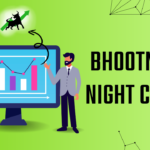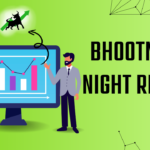In recent years, online slot has evolved from a niche hobby into a global industry, generating billions in revenue and engaging millions of players daily. Beyond its entertainment value, the online gaming ecosystem has sparked innovative business models that extend far beyond traditional gaming companies. From in-game purchases to digital economies, subscription services, and the rise of cross-industry partnerships, online gaming is a driving force behind the transformation of how businesses operate. In this article, we explore how online gaming is shaping new business models and what that means for various industries.
The Rise of Freemium and In-Game Purchases
One of the most influential business models that online gaming has popularized is the freemium model. Games are offered for free, but players have the option to purchase in-game items, cosmetic upgrades, or premium content through microtransactions. This model has proven highly successful for games like Fortnite, League of Legends, and Call of Duty: Warzone, which generate massive revenues despite being free to play.
The appeal of the freemium model lies in its ability to attract a large player base by eliminating the upfront cost of entry. Once players are engaged, they are more likely to spend money on enhancing their experience, whether by purchasing skins, battle passes, or other digital assets. This approach has fundamentally changed the gaming industry’s revenue structure, shifting focus from one-time purchases to continuous streams of income.
Subscription Services and Game Streaming
The gaming industry’s embrace of subscription models mirrors the success seen in other entertainment sectors, such as streaming services like Netflix and Spotify. Services like Xbox Game Pass, PlayStation Plus, and Apple Arcade allow players to access vast libraries of games for a monthly fee. This model offers tremendous value for consumers and recurring revenue for companies.
The rise of cloud gaming platforms like Google Stadia and NVIDIA GeForce Now further builds on this model by offering gaming experiences without the need for expensive hardware. Gamers can stream high-quality games to any device with a reliable internet connection. This subscription-based approach, combined with cloud technology, is reshaping not just how games are consumed, but how developers approach game development, as they must now cater to a constantly evolving service rather than a one-time product.
The Emergence of Digital Economies and NFTs
Online gaming has given birth to intricate digital economies, where in-game assets hold real-world value. Players in games like World of Warcraft, EVE Online, and Axie Infinity can trade, buy, and sell digital goods, sometimes for substantial sums. In many cases, these in-game economies mimic real-world market behaviors, leading to the development of virtual goods marketplaces.
A more recent development is the rise of Non-Fungible Tokens (NFTs) in gaming. NFTs allow players to truly own unique in-game assets, such as skins, weapons, or characters, which can be traded or sold on blockchain platforms. This model has the potential to create new revenue streams for game developers and players alike. Blockchain technology offers transparency and security, enabling players to profit from their in-game accomplishments, while also providing developers with an opportunity to create rare, limited-edition items that hold value outside of the game.
Cross-Industry Collaborations and Partnerships
Another significant trend in the online gaming world is the increasing number of cross-industry collaborations. Gaming companies are partnering with non-gaming brands to create unique in-game experiences, merchandise, and digital content. A notable example is Fortnite, which has collaborated with brands like Nike, Marvel, and Travis Scott to bring virtual concerts, character skins, and branded content into the game.
These partnerships allow gaming companies to expand their audience and revenue streams by tapping into other industries. For non-gaming brands, these collaborations provide an opportunity to engage with the highly coveted gaming demographic, which skews younger and more digitally savvy. This cross-pollination of industries is setting new standards for brand engagement and marketing strategies in the digital age.
Esports and Sponsorship Opportunities
The growth of sbobet has opened up new business opportunities for both gaming companies and brands seeking to reach a global audience. Esports tournaments, leagues, and events have attracted millions of viewers, with games like League of Legends, Dota 2, and CS
leading the charge. Major brands like Coca-Cola, Intel, and Red Bull have embraced esports by sponsoring events, teams, and players.
Sponsorship deals and advertising within esports arenas and livestreams are driving revenue for gaming organizations and players, while giving brands a direct line to passionate, engaged consumers. This symbiotic relationship has helped solidify esports as a legitimate and profitable sector of the entertainment industry, while also offering unique monetization strategies for all parties involved.
The Future: Metaverse and Beyond
The concept of the metaverse—a shared, virtual space that blends the physical and digital worlds—has been a hot topic in both tech and gaming industries. Companies like Meta (formerly Facebook) and Epic Games are actively working on creating these expansive, interactive virtual worlds. Online gaming platforms are expected to play a critical role in shaping the metaverse, offering users a place to socialize, work, and shop, all within a gamified environment.
For businesses, the metaverse presents an opportunity to create immersive brand experiences and open new digital storefronts. In this virtual space, players could attend virtual concerts, shop for real or virtual products, and participate in branded events, all within a cohesive, interconnected universe. As the metaverse concept continues to evolve, online gaming will be at the forefront of innovation, pushing the boundaries of digital interaction and commerce.
Conclusion
Online gaming is no longer just a form of entertainment—it’s a catalyst for business model innovation across various sectors. From the freemium model and digital economies to subscription services, cross-industry collaborations, and the rise of the metaverse, online gaming is reshaping how businesses generate revenue and engage with consumers. As gaming continues to evolve, it will undoubtedly introduce new opportunities for businesses to thrive in the digital world.
By staying at the cutting edge of technological innovation, online gaming is not only changing how people play, but also how businesses operate, adapt, and grow in the increasingly digital economy.














